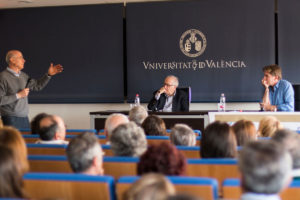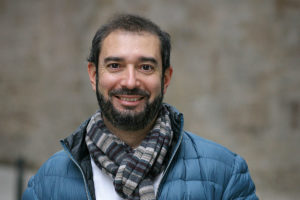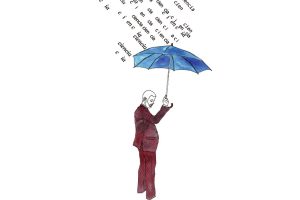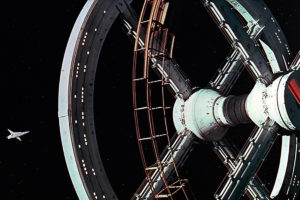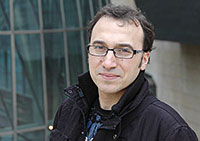Search
Over the centuries, several authors have attempted to put together popularisation works about the big history of scientific knowledge. One of the is Vestiges, by Robert Chambers.
Current science leads us to pajama dissemination, to write about stories without ever leaving our homes.
The journalists José Martí and Javier del Pino analyse media coverage of the discipline during the debate «How mathematics are seen from the other side».
Science communicator, writer and public speaker. That is how Pere Estupinyà (Tortosa, 1974) describes himself. He is also known as «the sex scientist».
[caption id="attachment_44056" align="alignleft" width="320"] Illustration by Moisés Mahiques[/caption] A few days ago, the writer of a radio programme wrote to me asking if I would like to comment on a scientific study on the air. The study said that oral sex reduced the risk of cancer.
The existence of habitable extra solar planets, is nothing new in science fiction cinema. Perhaps more interesting is the existence of unusual planets, such as the planet Tatooine from Star Wars (1977), by George Lucas, that orbits a binary star system.
In the eighteenth century, the metre, its multiples and decimal submultiples cornered the cumbersome use of sexagesimal systems, still valid until then.
I write this article in the midst of a controversy among Spanish scientists regarding an alleged fraud in the works of one of them. If the accusations were true, published works, allegedly manipulated, passed the most rigorous scientific excellence tests for years. Fraud and plagiarism
Interview with Maurizio Gotti, linguist at the University of Bergamo, researcher on specialised discours
In 2012, the Royal Statistical Society issued the following question to the members of the British Parliament, probably regarding the International Year of Statistics (2013): «If you toss a coin twice, what is the probability of getting heads twice? ». The correct answer is «a probability of



